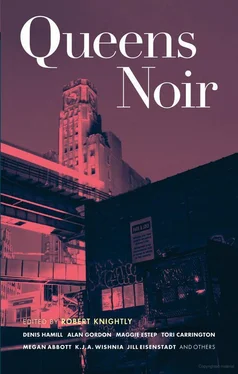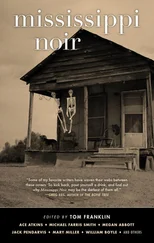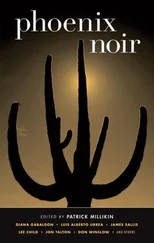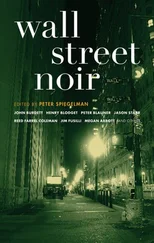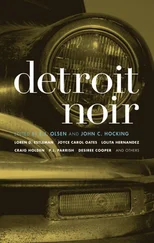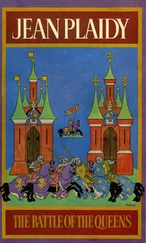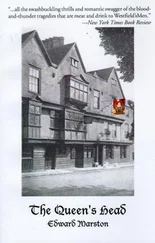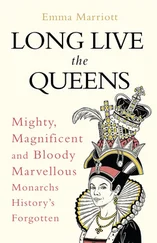Jillian Abbott's - Queens Noir
Здесь есть возможность читать онлайн «Jillian Abbott's - Queens Noir» весь текст электронной книги совершенно бесплатно (целиком полную версию без сокращений). В некоторых случаях можно слушать аудио, скачать через торрент в формате fb2 и присутствует краткое содержание. Город: New York, Год выпуска: 2008, ISBN: 2008, Издательство: Akashic Books, Жанр: Детектив, на английском языке. Описание произведения, (предисловие) а так же отзывы посетителей доступны на портале библиотеки ЛибКат.
- Название:Queens Noir
- Автор:
- Издательство:Akashic Books
- Жанр:
- Год:2008
- Город:New York
- ISBN:978-1-933354-40-8
- Рейтинг книги:5 / 5. Голосов: 1
-
Избранное:Добавить в избранное
- Отзывы:
-
Ваша оценка:
- 100
- 1
- 2
- 3
- 4
- 5
Queens Noir: краткое содержание, описание и аннотация
Предлагаем к чтению аннотацию, описание, краткое содержание или предисловие (зависит от того, что написал сам автор книги «Queens Noir»). Если вы не нашли необходимую информацию о книге — напишите в комментариях, мы постараемся отыскать её.
Queens Noir — читать онлайн бесплатно полную книгу (весь текст) целиком
Ниже представлен текст книги, разбитый по страницам. Система сохранения места последней прочитанной страницы, позволяет с удобством читать онлайн бесплатно книгу «Queens Noir», без необходимости каждый раз заново искать на чём Вы остановились. Поставьте закладку, и сможете в любой момент перейти на страницу, на которой закончили чтение.
Интервал:
Закладка:
The last few orphans left the room and he took Beryl’s hand as they strolled home to Gloria’s, the chill air turning Beryl’s nose bright red.
The investigation
by Belinda Farley
Jamaica
So Edwin Stuckey had not believed in miracles. Couldn’t have. By the third hour of services at the Crusading Home of Deliverance in southeastern Queens — when the bellow of the preacher rang out like a toll that beckoned to repent and reform, and the congregation of twenty-eight had sprung to their feet in a fervor — I, who had so often scoffed at organized religion, was on my feet as well. All about me, the jiggle-jangle of tambourines being slapped on open palms reverberated. Shouted hallelujah s stung my eardrums. Tears were shed; wails directed heavenward. Was I praying?
I should’ve been taking notes.
Instead, I now found myself exercising total recall on the F train. It had been a week since the call had come in on the police scanner: a “1010” announcing a possible death at Guy R. Brewer Boulevard and 108th Avenue. I was a reporter, a novice in the newsroom of a weekly in Richmond Hill, where the Maple Grove Cemetery kept us a safe distance from Jamaica, the neighborhood of this particular call. Jamaica, Queens intimidated the other staff reporters — all four of whom were white — for no other reason than its inhabitants were largely black, and so we tended not to report there. The paper was a rag anyway, housed in bright yellow corner boxes and valued mainly for its classifieds. I worked there to prove to my folks that the money they’d shelled out for my J-school tuition hadn’t been a complete waste.
I still lived with my parents, and a great aunt, in a Brooklyn brownstone that had been in my family for three generations. I’d been happy there. We were privileged upper-middle class, or, rather, my parents were, being members of fraternal organizations, committees, and social clubs with established roots in the African-American community of Bedford-Stuyvesant. Despite my precarious employment, I was still considered a catch within my circle; I’d escorted no less than three females to their debutante balls. I supposed that sooner or later I’d have had enough of my journalism career and would join an uncle on Wall Street.
The call came in while I was alone in the office. Later — when things had run their course — I thought of a photograph that I had tacked to the wall in my college dorm.
The picture showed a house on a hill in Hollywood, California, circa 1962. It was taken by Diane Arbus, so, of course, it looked like no other house on a hill in Hollywood, or anywhere else. The hill was all tangled vine and bare tree limb, and the house was appropriately dark and stoic, and made of cardboard. It was a prop. But the sky above it was lovely. Who, what, when, where, why, and how: No photo — or story, for that matter — ever told the whole truth. The most important lesson I learned in J-school.
There was no ambulance nor squad car at the scene when I arrived. I didn’t feel too confident as I rapped on the door of the modest wood-frame house. You could feel on the street that the neighborhood was tight: Loungers on their front porches eyed my unfamiliar self with suspicion. But I needed to get a byline under my belt.
“Yes?” The door swung open immediately and a man who appeared to be in his late fifties eyed me over his glasses.
“Evening, uh, morning, sir,” I stammered, to no acknowledgment. I hoped I wasn’t too late. “I’m a reporter for the—”
“Who is it, Gershorn?” A thick, squat woman with a hairdo that looked as if it had been roller-set for two days appeared at the man’s side. With her elaborate coif, and skin the color of a gingersnap, she could’ve been an aged starlet. In reality, she was a housewife, as evidenced by the formality of an apron tied over her blue housecoat.
The man bristled. “We were expecting someone, but not you,” he said. “What is your business here, young man?”
Where the skin of the woman remained taut and unlined and shone with the assistance of petroleum jelly, every second thought and hardship that had ever befallen the man was noted in some wrinkle or frown line that caused his face to sag like a deflated mahogany balloon. His gray hair was coiled in tight, generous ringlets on his scalp. He was tall, standing nearly two heads above her.
“I’m Doug, Douglass Nichols, and I’m a reporter for the Weekly Item .” I extended my hand. “I’m responding to a call that came over our police scanner regarding a possible death...?”
The man stared at me blankly. He did not shake my hand. I glanced at my notepad to confirm the address.
“Sir, was there an incident here tonight? The police came?”
The man contemplated my question before opening the door to me. “A crime, young man, not an incident. Come in.”
I stepped inside. He closed the door behind me and clasped his hands behind his back.
“Claudette,” he called to the woman. “Tea. Tea for our guest.”
In no time at all the woman reappeared with a lone cup on a saucer, which she extended to me. I balanced it on my notepad. The man motioned for me to take a seat.
On either side of the doorway stood a pair of ivory ceramic Rottweilers like sentinels. Potted plants generously dotted the living space, barely allowing me room to sit down upon a brocaded sofa sheathed in plastic. It was positioned between two end tables that supported lamps bearing shades of heavily braided fringe that must have smoldered every time the light was switched on.
The walls were teal; the lamps were gold. I committed the room to memory, to be described later in my story.
“Do you take sugar?” the woman asked haltingly.
I shook my head.
The man sat down beside me, and the woman took a seat across the room at a dining room set of heroic proportion. It spoke of some other time — a time in which there were castles and feudal systems — with elaborate inlaid carvings, mounted on claw feet. An unframed oil painting of a Caribbean landscape hung above it.
“The Bel-Air Mountains, yes,” the man nodded approvingly as I studied the painting. “That was once the view from my own window. See there?” He rose to his feet and approached the image, pointing. “Those mules, those pigs foraging in the garbage pits? Those palms, those coconuts? Is all Haiti. Is my home.”
He turned to face me, scrutinizing me.
“I am Mr. Stuckey,” he said finally. “And this is Mrs. Stuckey.”
I nodded and waited for him to continue. He did not.
“You say your son was murdered,” I ventured.
Mr. Stuckey nodded, satisfied with my inquiry. “In that room, there.” He pointed down a darkened hallway.
Now it was my turn to give him the eye. What’s going on here?
Noting my skepticism, the man rose to his feet. “Follow me.”
Midway down the hall, he paused and flicked on a light switch. A door stood open adjacent to it, though the other doors on either side of the room were closed. Warily, I peered into what appeared to be a child’s bedroom or, rather, the room of an adolescent boy. It was painted a dense, cornflower blue, and decorated with outdated pop culture posters. A large, weathered Table of Periodic Elements hung on one wall, attached with brittle and yellowed tape.
“That once was mine,” Mr. Stuckey noted proudly, indicating the poster. “When I was a boy, it hung in the classroom of my secondary school, the Petion National Lycée.” His back stiffened with pride at the mention of the name. “It was given to me by the headmaster, a gift. I was to be a great scientist, then.” He paused. “As was Edwin too.”
The room was small. Shoved under a window that opened onto brick was an unmade twin bed, and not two steps from it stood a modest desk, bowed by a stack of books whose titles were turned away from me. A boom box also sat perched atop the desk, and there — How had I not seen that ! — rested an overturned chair and a noose hanging limply from a light fixture above it.
Читать дальшеИнтервал:
Закладка:
Похожие книги на «Queens Noir»
Представляем Вашему вниманию похожие книги на «Queens Noir» списком для выбора. Мы отобрали схожую по названию и смыслу литературу в надежде предоставить читателям больше вариантов отыскать новые, интересные, ещё непрочитанные произведения.
Обсуждение, отзывы о книге «Queens Noir» и просто собственные мнения читателей. Оставьте ваши комментарии, напишите, что Вы думаете о произведении, его смысле или главных героях. Укажите что конкретно понравилось, а что нет, и почему Вы так считаете.
